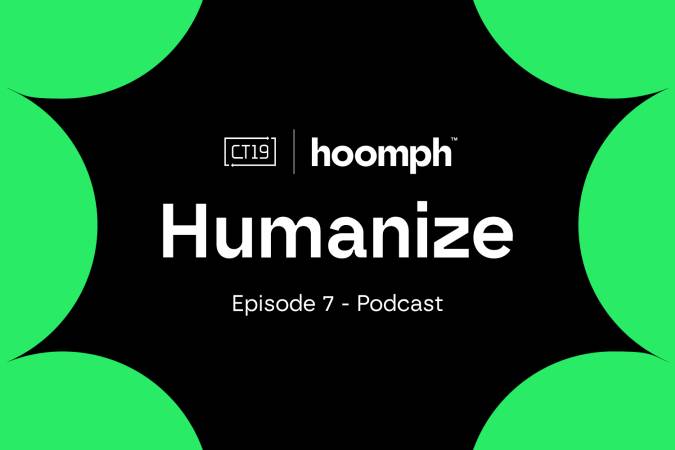The year 2024 promises a dynamic convergence of traditional practices and cutting-edge advancements. And HR is set to feel the effect, as many organisations in different industries navigate the future of technology-driven operations and work out what this means for their workforce.
One of the most significant disruptors is the rise of artificial intelligence (AI) – the technology everyone is talking about – prompting organisations to reconsider their strategies for both productivity enhancement and ethical implementation. As we stand at the cusp of this technological revolution, it becomes imperative for businesses to harness the potential of AI while ensuring robust governance and ethical considerations.
Here, we explore the HR trends we expect to gather pace in 2024, including a closer look at AI's role in our landscape, as well as the future of hybrid working and the importance of addressing employee-centric needs.
Organisations will learn to leverage AI for enhanced productivity and spur wage raises
The advent of AI is undeniably poised to reshape workplaces dramatically, sparking immediate concerns about heightened job insecurity. However, within this transformation lies an opportunity, as AI presents the prospect of enhancing productivity and efficiency. While the full impact of AI remains unclear at this early stage, it is imperative for organisations to proactively explore how to leverage its potential for their benefit. Equally crucial is the need for stringent governance and people policies to regulate AI usage, ensuring alignment with ethical values and legal principles and guarding against potential misuse.
If one thing is for certain, more education is needed before any organisation can use AI effectively and safely. That’s why we feel it’s our responsibility to ensure that our clients are informed about the impact of it on business operations and the key considerations in managing AI at work, and will be running a collaborative breakfast meeting with CT19 in January 2024 to explore this topic further.
Hybrid and remote working effects on employees will become more apparent
Hybrid and remote working – along with related flexible arrangements – have become permanent fixtures in the professional landscape. However, persistent controversy surrounds these shifts, particularly with the rapid adoption of hybrid models and compressed working weeks (the four-day week, for example). This swift transformation challenges traditional work expectations and will continue to do so in 2024.
The apparent short-term benefits of hybrid working, for both employers and employees, become increasingly nuanced over time – does it truly enhance work-life balance, or does it diminish the social cohesion vital for organisational unity? Does the isolation of remote work boost productivity, or does it contribute to declining mental health? Questions of cost-effectiveness arise too, comparing the expenses of commuting to work against the added costs of lighting and heating at home. The ongoing debate reflects the evolving societal expectations around work-life balance, suggesting a collective understanding will take time to materialise.
Businesses will need to put their money where their mouth is where mental health is concerned
The spotlight on mental health has transitioned into mainstream consciousness, with an ever-growing awareness. The positive move away from stigmatising mental health is undeniably beneficial. Yet, this shift poses challenges for organisations, demanding a move beyond superficial approaches to employee support. There is a need for a thorough evaluation of how unspoken values and work practices affect the mental wellbeing of employees. Additionally, organisations must scrutinise their role in fostering both employee and company resilience, recognising that comprehensive strategies are essential for navigating the intricacies of mental health in the workplace.
Employees will choose companies that align with their values rather than just monetary compensation
The landscape of work-life balance is undergoing a profound shift, influenced by the aftermath of the pandemic, movements like 'Me Too' and 'Black Lives Matter,' and heightened awareness of climate change. Employees are re-evaluating their professional engagements based on how well their employer's values align with their personal aspirations. It's no longer solely about preventing work from encroaching on personal life; instead, a moral obligation is emerging. Employees are increasingly inclined to disregard potential employers who do not uphold their own moral and ethical values.
Simultaneously, there's a growing emphasis on the meaningfulness of work, considering its impact and the sense of achievement it provides. Organisations now face the challenge of engaging their workforce in a shared commitment to agree upon, live, and practice these evolving values. These values must remain alive and dynamic, adapting as the human capital within the organisation evolves. Employees now seek a roadmap for their journey with the company, determining whether there's a destination worth aspiring to.
HR will become pivotal in managing threats of change fatigue
In the ever-accelerating business landscape, businesses are maintaining a relentless pace of change. Over the past two years, the COVID-19 pandemic, coupled with shifts to remote and hybrid working, has significantly tested employees' resilience.
As we venture into 2024, the momentum of change shows no signs of decelerating. The economic terrain remains challenging, with securing investments for small businesses proving more arduous, and larger enterprises exploring cost-cutting measures, often resulting in restructuring and redundancies.
HR's role becomes pivotal in gauging the workforce's adaptability to continuous change. The looming threat of change fatigue necessitates proactive support for employees. Effective communication, tailored expertise in navigating change, and a focus on mental health and employee wellbeing become imperative. In this dynamic environment, retention of talent hinges on HR's ability to guide employees through the impacts of ongoing transformations.
Hybrid working will shape organisational culture for the foreseeable future
Long-standing on the HR agenda, we unanimously recognise that culture is the indispensable competitive advantage we seek. However, cultural shifts are underway due to reduced social interactions with the prevalence of hybrid and remote working, which means the traditional employee community is transforming as office time diminishes.
Therefore, a deliberate focus on shaping our organisational culture is crucial. In this regard, HR serves not as the owner but as the custodian, guiding culture through policies that foster healthy work environments, irrespective of the working model—be it hybrid, remote, or in-office. Looking ahead to 2024, prioritising culture becomes a strategic imperative at both the commercial and boardroom levels, as it rightfully should be.
Looking ahead
As recent years have shown, unforeseen challenges can swiftly reshape the business landscape—whether it's the global impact of a pandemic or the transformative influence of AI on workforce efficiency. In this ever-evolving environment, there’s one certainty: HR remains the steadfast cornerstone of organisational change. Through navigating uncertainties, HR plays a pivotal role in supporting employees and contributing to crucial strategic decisions, solidifying its position as an indispensable force when it truly matters.



